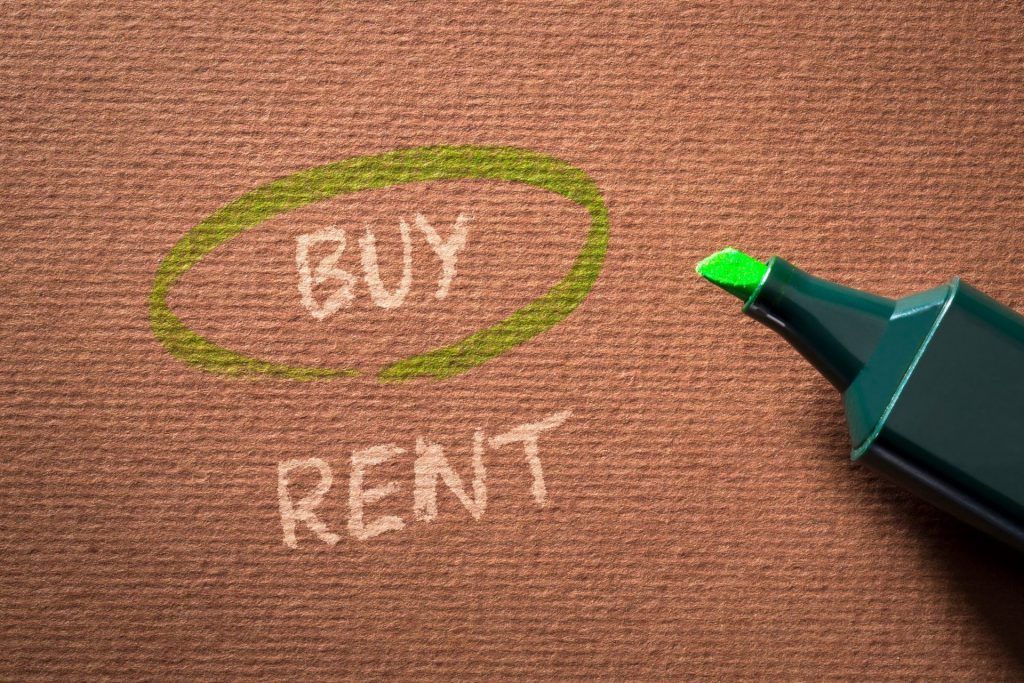
To rent or to buy? It is an ongoing discussion in the property industry, and it comes down to what’s best for the person who is looking to enter the property market. To make a decision, you should weigh up the advantages and disadvantages of renting and buying, then evaluate both sides to see what is more suitable for your lifestyle.
Advantages of Renting
If you are a renter, you have the freedom to live where you want to and go with the flow! Renting is more appealing to those who might not be ready to settle down in one location for a long period of time. The ability to change the location of your home is more attractive for young Australians and families that are on the move regularly due to work, school or relocating to be closer to university.
Renting a home can be seen to be less financially stressful on its tenants compared to those who own a home. Depending on your rental agreement, the standard agreement is for the tenant to pay their weekly or fortnightly rental payment and utilities, including water usage and electricity. Other expenses that are paid by the tenant can include internet or entertainment, but these are to be organised by the tenant when they move. If there is a maintenance issue, such as a leaky kitchen tap, the Property Manager will organise for its repair and it will be the owners’ expense to pay, not the tenants.
Since you are not the owner of the property you’re living in, you won’t need to pay all housing costs. This means you’ll be able to save more money and spend it at your own leisure.
Disadvantages of Renting
Unfortunately, you cannot stop the inevitable change of the property market. If your lease is coming to an end, the landlord and Property Managers are well within their rights to increase the weekly rental amount. These unstable rental conditions may force renters to move out of the house and find a place that is more affordable. The struggle to make ends meet during your time of lease transition may cause high stress levels, especially if you have children and are short on time.
Renting is often referred to as “dead money.” The amount you pay each week or fortnight is money that you won’t get back as it is going towards your landlord’s mortgage. For example – if you have been in the same house for 3 years and paying $400 per week, you would have paid $62,400 to your landlord, excluding any bills. It can be a bit of a reality check when you do the maths on how much money you have actually spent renting. In this scenario, $62,400 is a lot of money and we can all agree that we would prefer that money in our bank account rather than someone else’s!
Advantages of Buying
As a homeowner, security and stability are extremely important. The house is yours, so you know how much your usual expenses are and when the bills are due. You can create a budget and timeline of when these bills are due to stay on top of it! You are your own landlord, so you don’t need to worry about complying to someone’s rules or someone kicking you out when your lease ends.
If the house you buy grows in value, you will have hidden equity available that could come in handy in the future! You could leverage from your equity and use this to buy another property to add to your property portfolio. If you decide to sell the house during or after growth has occurred, you could have the opportunity to make a profit that can be put towards achieving your next goal.
The current Government Initiatives make it an ideal time for first-time buyers to get their foot in the property market! The State and Federal Government Initiatives available provide first-time buyers more financial assistance to own their first home. Two examples of Government Initiatives available for eligible buyers are the QLD First Home Owners’ Grant and the First Home Loan Deposit Scheme.
Another great benefit to owning your own home is that you will never have to ask a landlord for permission to get a pet! Which is quite a luxury if you have always been tied down by a lease.
Disadvantages of Buying
There are many benefits to buying a home but as a first home buyer, you must understand the financial responsibility it comes with. It is important to be organised and prompt when dealing with you home loan and finances. You must ensure that your mortgage repayments are regular, and all your bills are paid on time to avoid falling into debt and worsening your credit situation. As a homeowner, you must be willing to make sacrifices to maintain and care for your new investment. This might mean cutting back on unnecessary expenses such as eating out and splurging on luxury items.
The property market is very competitive and as it grows, first home buyers are having to fork out more for a deposit than previously required. Thanks to the First Home Loan Deposit Scheme, first -time buyers who are strapped for upfront cash are supported, only needing to put a 5% deposit towards their first home. Although there are many Government initiatives to support first-time buyers, coming up with the initial deposit can be challenging for some.
For those willing to invest in buying property, the opportunity is definitely worth the handful of difficulties. First home buyers who are taking proactive steps as a result of planning long-term will reap the rewards of their efforts in the years to come. As a first home buyer, now is the time to take advantage of what the property market can offer. Wealth, equity and investment security are all achievable goals for those willing to put in the effort to explore their options.
